Noel Fitzpatrick, TV's new favourite vet, is not afraid to rattle a few cages for the sake of his animals
Jack Watkins interviews TV’s new favourite vet, on why he believes animals deserve better and how he wants to change attitudes.

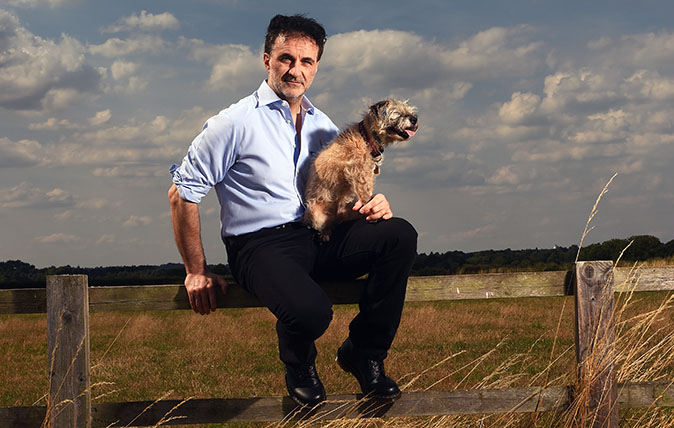
I approach Fitzpatrick Referrals, the headquarters of Noel Fitzpatrick, or Supervet, as he’s known to his growing following, along a golden greensand track of the classic Surrey Hills variety, dusty in the heat of summer.
Venerable trees on the hedge banks offer welcome shade. A sensible person would have taken the taxi from Godalming station, but I’m glad I didn’t, the unconventional route setting me up for a meeting with an unconventional man.
The professor, an orthopaedic-neuro veterinary surgeon, has made a name for embracing technology and innovative techniques in the treatment of animal diseases and injuries that would have been unthinkable a few years ago. He founded The Humanimal Trust to further his belief in the concept of ‘one medicine and the cross-pollination of ideas between veterinary and human medicine’.
With a new series of The Supervet, his Channel 4 documentary, starting this month, plus a first book out soon, he’s embarking on a nationwide theatre tour with a show entitled Welcome to My World. That, too, will embrace hi-tech, with promised delights such as a ‘Bionic Bunker’, which, he explains, ‘will allow youngsters in the audience a chance to feel they are physically beside me as I perform an operation’.
‘Children are way more intelligent than we think,’ he continues, telling me about a nine-year-old girl who wrote to him, grilling him about some obscure procedure that, frankly, I couldn’t even spell.
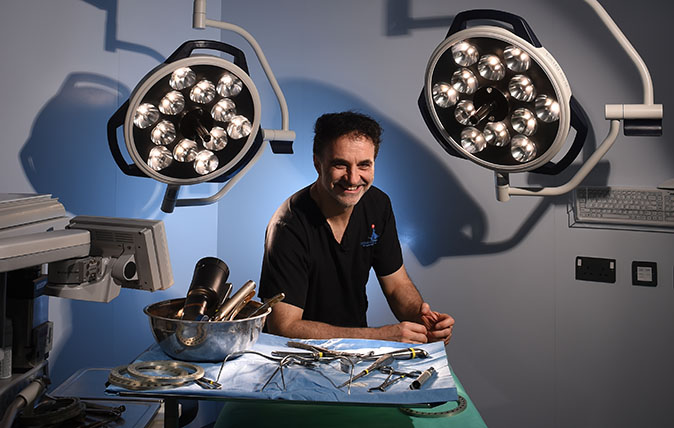
Despite the groundbreaking set-up of his clinic (there is also an animal hospital in Guildford that aims to change the way cancer is treated in companion animals), finding Prof Fitzpatrick in this rural corner seems fitting. His messages of love and respect for the natural world are rooted in age-old values from which mainstream Britain seems increasingly detached and his ability to cut through to the younger generation is priceless.
‘This was a rundown farm before I bought it,’ he says fondly of the location. ‘In fact, when I was working for a general practitioner some years ago, I had to push a prolapsed uterus back inside a cow here. I’ve been very lucky to have been able to build this practice here because it transports me back home.’
Exquisite houses, the beauty of Nature, and how to get the most from your life, straight to your inbox.
By ‘home’, he means Ballyfin, a small village in Co Laois in central Ireland. ‘My father was a farmer,’ he says, pointing to the rather lethal-looking saw that’s mounted in a case on the wall, which he used to de-horn cows.
‘My friends were the animals, especially the sheepdog, Pirate, but the experience shaped me profoundly. It was the belief there that a creature like a cow owed its existence solely to its value as a provider of milk, whereas I saw them as sentient creatures with their own needs and wants.’
He says he won’t disclose what caused the ‘epiphanous’ moment that decided him upon his calling until the tour, but he admits he’s always gravitated towards dogs and cats. ‘It’s the big bond of friendship you forge. After you die, a dog will bring newspapers to your grave.’
Keira, his Norfolk terrier, which has been sitting at my feet throughout our chat, is a fine example: ‘I can be downstairs performing a euthanasia and then I’ll come in here and Keira restores my sense of hope.’
I’d intended to ask him about the challenge of being a vet who’s become a presenter, but it’s clear he doesn’t see himself in that light at all. Viewers might know him as Supervet or Bionic Vet, but he says he couldn’t care less what he’s called.
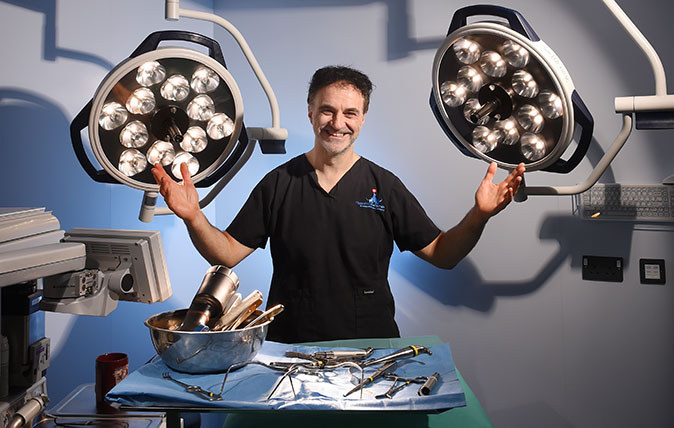
‘What matters to me is what I do. Being in front of the camera is totally polarising – people think you want to be in the public eye – but my objective is to change the world. I can produce 300 scientific papers, but they’ll never be read by you, only by my fellow professionals. The amount of traction I get is limited, but if you can explain these things in layman’s terms, you can make a difference.
‘I called my book Listening to the Animals because I didn’t want to write some self-indulgent, backslapping affair, but to look at the world from an animal’s perspective. We have a haughty attitude to the ecosystem, but it belongs to animals as well as humans.’
He possesses genuine charisma and I can see how he appeals to youngsters, with his outsider quality and his idealism, directness and refreshing informality. He mentions being bullied at school and how, on the farm in childhood, he invented an imaginary character, Vet Man, who was a superhero to the animals.
I like the way his vision extends beyond better treatment of domestic pets to wild animals. He treated two hedgehogs in the week of our meeting, in the middle of a heatwave, brought over by the local wildlife trust. ‘Hedge-hog numbers are down 95% in recent years,’ he says, shaking his head, ‘and wildlife is taking a real hit in this heat, but you’re not hearing much about that in the news, are you?’
He’s convinced a new generation that’s more committed to the natural world is developing. I tell him I’ve seen archive footage of the inspirational naturalist Sir Peter Scott, speaking of his belief that we were evolving into Environ-mental Man. That film is 50 years old, but we still seem to treat Nature as if it’s a museum or art gallery, just something to do at the weekends.
‘Well, there won’t be any wildlife left in the gallery, the way things are going,’ he agrees, ‘but although my show is autobiographical, it’s everybody’s story. I want to get my message over to the guy in the audience who doesn’t want to be there, who’s only there because he drove the kids. Hopefully, I can do it with humour, because, in that way, you access the human soul.’
I hope he succeeds. Some animal people in the media tend to be mild souls, too quick to lapse into the sentimental. It’s time we had someone who’s willing to rattle a few cages.
The Welcome to My World tour will run from September 27 in Hull to November 25 at the 02, London. Click here for more details. ‘Listening to the Animals’ will be published by Orion on October 18 and a new series of The Supervet starts on September.
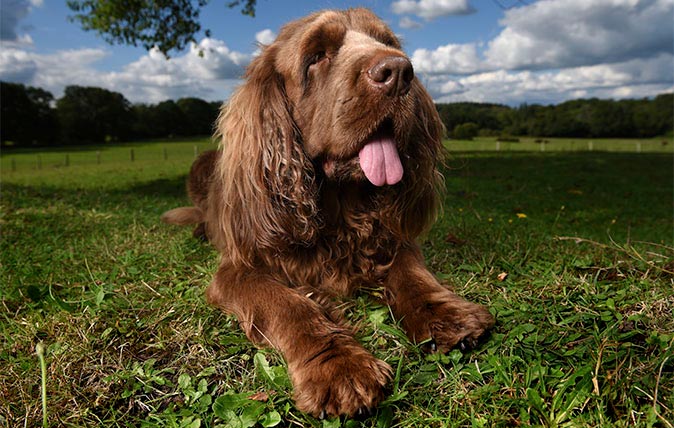
Credit: John Millar/Country Life
The top ten British dog breeds that need saving and quickly
French bulldog wins top spot over labrador as some of the most quintessentially British breeds are pronounced 'vulnerable' by the
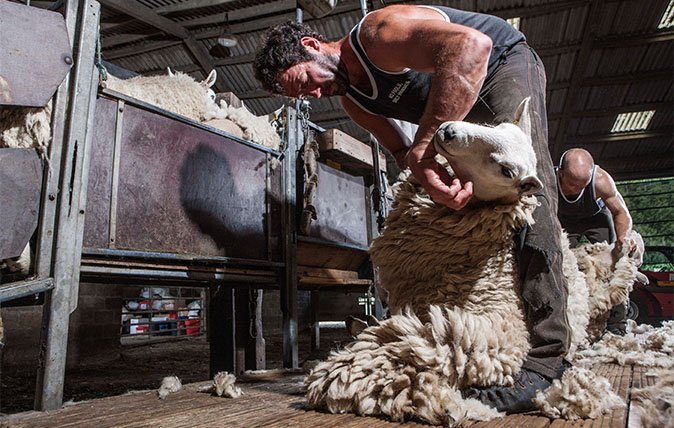
Credit: Richard Cannon
The sheep-shearer: 'If you tell people what you do, they often don’t know what it involves'
Sheep-shearers are a dying breed, but Ashley Story relishes the back-breaking work. He spoke to Tessa Waugh; portraits by Richard
Country Life is unlike any other magazine: the only glossy weekly on the newsstand and the only magazine that has been guest-edited by His Majesty The King not once, but twice. It is a celebration of modern rural life and all its diverse joys and pleasures — that was first published in Queen Victoria's Diamond Jubilee year. Our eclectic mixture of witty and informative content — from the most up-to-date property news and commentary and a coveted glimpse inside some of the UK's best houses and gardens, to gardening, the arts and interior design, written by experts in their field — still cannot be found in print or online, anywhere else.
